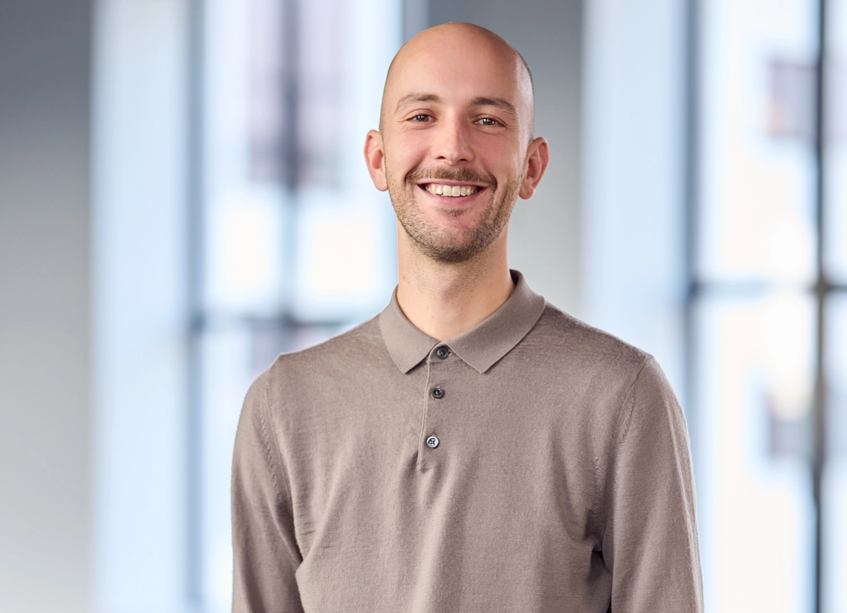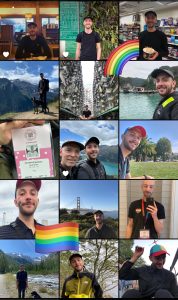Thoughts on Diversity and Inclusivity Within the Media Industry
- POV’s
- Publications
- August 27, 2024
- Jakub Busek Seiling
Why and what are you passionate about when it comes to the LGBTQIA+-community and the diversity and inclusivity agenda?
Overall, it’s the sense of community and the collective ambition for a better future of our next generations. Like many other changes in our society, it doesn’t happen overnight. What the previous generations have done becomes clear in the present generation. I think the dedication and determination of the community is what inspires many of us and brings our community together.
The reason I’m able to participate in this interview today is due to the efforts of past generations that paved the way for me and the rest of our community, allowing us to live authentic lives and to express ourselves in everyday life, both at work and in society in general.
You mention the contribution of previous generations and how they’ve paved the way for how far we’ve come today, and how we’ll impact the future. What would a better tomorrow look like?
Ideally, the goal is for these discussions to become unnecessary. Our identities are essential to our daily lives, and they shouldn’t set us apart from the wider society. Equality should be the norm. I hope for a future where discrimination or judgment based on sexuality or gender is non-existent in our daily lives. People used to conceal their true selves to fit in, but now, at least in our context, being unique is embraced.
The aim is to raise awareness about the diverse layers of society. Ultimately, the best outcome would be that this discussion stops being relevant.
Would you say that the media and marketing industry is a good or bad industry to work in as someone who’s a part of the LGBTQIA+ community?
The industry seems to be on a positive path in its ongoing development and adaptation. The younger generation plays a fundamental role in driving the change. An example I can provide is when one of our agencies presented a fresh approach to advertising aimed at Gen Z. They included a wider range of profiles beyond just male and female, introducing different personas. This approach acknowledges that people aren’t just defined by their assigned gender, which is a great step forward. Working in this industry offers openness and opportunities for such progress, not only internally but also in interactions with clients.
However, I think context plays a key role too in discussing one’s sexuality. It may not always be relevant for me to state my sexuality. Similarly, companies should be thoughtful about when and how they address diversity topics with clients. It’s not something to bring up randomly; there should be a meaningful reason for the conversation.
Authenticity is essential when companies communicate about diversity. It shouldn’t just be a superficial marketing strategy aimed at making profits. Instead, inclusivity should be deeply ingrained in a company’s values and actions, creating considerable change rather than just seeking visibility. Only changing a logo during Pride month, for instance, without real commitment, is quite dishonest, I think. So, achieving balance is essential.
What about any positive or negative change within GroupM?
I think the GroupM policy is a great example of adjusting to the way things are in the world today. I recently read an article about how the Danish national system doesn’t fully acknowledge different types of family constellations – there are legal parents and social parents, but the law doesn’t quite recognize these types of families. GroupM is not being pushed by the government to be inclusive – they’re doing it because it makes sense to the people they employ.
I really appreciate how they’ve included the concept of social parents in the company policy. It’s a practical change for me. For instance, if my partner, who has a son, can’t pick him up from school, I can step in without having to prove my connection to him. I play a significant role in his life, so I should be able to pick him up without any trouble.
Then there’s this other noteworthy thing GroupM have done. It is the introduction of a fair parental leave plan for all, regardless of the family arrangement. GroupM does not complicate things and their policies. It’s straightforward and impartial. They’re going the extra mile without making a big fuss about it. It’s like, why wait for the entire system to catch up when we can be the ones driving the change?
Where would you say our industry falls short and/or should do more to embrace the agenda and become a better ally for the LGBTQIA+ community?
I think companies, or the world in general, should work on offering an ongoing support rather than just focusing on specific months like June and August. I mean, it’s great that there’s dedicated time for awareness during those months. However, I think the impact is reduced when it happens in a short burst of activity. Instead of centring all efforts on one month and spending all the marketing budget on changing flags, printing posters, and so on, it might be more effective to maintain a continuous presence.
I don’t mean having a constant stream of rainbow-themed everything every single day. It’s more about having a subtle but consistent presence. Not shouting about it but not hiding it either. This approach could potentially make the message feel more authentic and commonplace, rather than something that’s just brought up during these very specific months, like an international pancake day.
What do you believe the future holds? Both within our industry and more importantly, within society in general?
Considering the generational shift, it’s interesting to see changing perspectives. The current generation is, in a way, positioned between past and future progress. We’ve experienced and contributed to creating change, and the upcoming generation will likely enjoy an even more inclusive environment – I really wish that. This is the result of many efforts and initiatives over our life time.
I do, though, think that we still have a journey ahead of us. Recent cases show us this, for example with the cases of harassment and shaming of gay and transgender people in Copenhagen.
Such instances remind us that even though we’ve made a lot of progress from previous generations, there’s still a lot of room for improvement. Considering the broader perspective, it’s clear that different countries are at varying stages of progress. Copenhagen Pride is, for example, a very unique celebration. However, in other places, Pride events are still driven by protests due to the ongoing struggles for acceptance.
What are your hopes as we move further on this journey?
My ultimate hope is that these discussions become unnecessary, as LGBTQIA+ acceptance becomes a normalized part of our society. This would mark a significant achievement, where these conversations would no longer stand out. It’s a journey that requires both collective efforts and personal consideration. However, I do truly appreciate being in a nation and a workplace where diversity is cherished, same-sex marriage a standard and where the Pride is celebrated as a life-affirming event.

